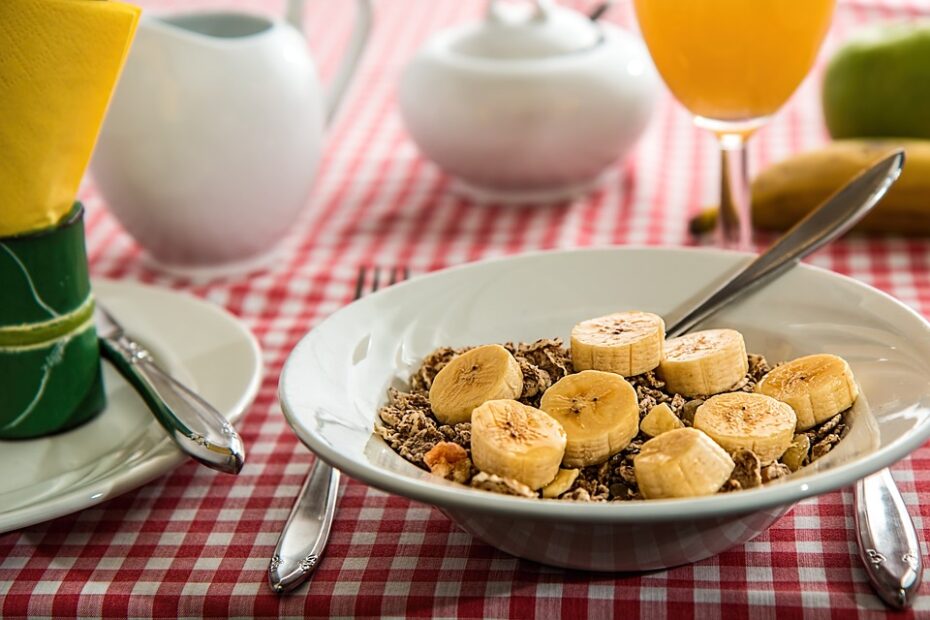gastric sleeve Surgery for BMI 32: A Comprehensive Guide
Are you struggling with obesity and looking for a long-term solution to improve your health and quality of life? If your BMI is 32 or higher, you may be a candidate for gastric sleeve surgery, also known as sleeve gastrectomy. In this article, we will delve into the details of gastric sleeve surgery for individuals with a BMI of 32, including what it involves, its benefits, risks, and what to expect before and after the procedure.
Understanding Gastric Sleeve Surgery
Gastric sleeve surgery is a minimally invasive procedure that involves removing a large portion of the stomach to create a smaller, sleeve-shaped stomach pouch. This reduces the amount of food your stomach can hold, leading to a feeling of fullness with smaller meals. The surgery also removes the part of the stomach that produces the hunger hormone ghrelin, which can help reduce cravings and appetite.
For individuals with a BMI of 32, gastric sleeve surgery is considered a safe and effective weight loss option. It is often recommended for those who have tried other weight loss methods without success and are at risk for obesity-related health issues such as diabetes, high blood pressure, and sleep apnea.
The Benefits of Gastric Sleeve Surgery
One of the primary benefits of gastric sleeve surgery for individuals with a BMI of 32 is significant weight loss. On average, patients can expect to lose 60-70% of their excess body weight within the first year after surgery. This weight loss can lead to improvements in overall health, reduced risk of obesity-related diseases, and enhanced quality of life.
In addition to weight loss, gastric sleeve surgery can also improve or resolve obesity-related health conditions such as type 2 diabetes, high blood pressure, and sleep apnea. Many patients experience increased energy levels, improved mobility, and a renewed sense of confidence and self-esteem after surgery.
Risks and Considerations
Like any surgical procedure, gastric sleeve surgery carries risks and considerations that should be carefully weighed before making a decision. Some potential risks of gastric sleeve surgery include infection, bleeding, blood clots, and complications related to anesthesia. It is important to discuss these risks with your healthcare provider and ensure that you are fully informed and prepared for the surgery.
It is also important to consider the lifestyle changes that come with gastric sleeve surgery. Following the surgery, you will need to adhere to a strict diet and exercise regimen to support your weight loss and maintain your health. This may include avoiding certain foods, taking vitamin supplements, and attending regular follow-up appointments with your healthcare provider.
Before the Procedure
Before undergoing gastric sleeve surgery, you will need to undergo a comprehensive evaluation to determine if you are a suitable candidate for the procedure. This evaluation may include a physical exam, blood tests, imaging studies, and consultations with a multidisciplinary team of healthcare providers.
You may also be required to make lifestyle changes leading up to the surgery, such as quitting smoking, losing weight, and adopting healthy eating habits. Your healthcare provider will work with you to create a personalized plan to prepare you for the surgery and optimize your outcomes.
After the Procedure
After gastric sleeve surgery, you will need to follow a strict post-operative plan to ensure a successful recovery and maximize your weight loss results. This plan may include a liquid diet for the first few weeks, followed by a gradual transition to solid foods. You will also be advised to start a regular exercise routine to support your weight loss and overall health.
It is important to attend regular follow-up appointments with your healthcare provider to monitor your progress, address any concerns, and make adjustments to your treatment plan as needed. Your healthcare provider will also provide guidance on long-term lifestyle changes to help you maintain your weight loss and achieve optimal health.
In conclusion, gastric sleeve surgery is a safe and effective weight loss option for individuals with a BMI of 32. By understanding the benefits, risks, and considerations associated with the procedure, you can make an informed decision about whether gastric sleeve surgery is right for you. If you are struggling with obesity and looking for a long-term solution to improve your health and quality of life, gastric sleeve surgery may be the answer you have been searching for.
Frequently Raised Concerns Regarding Gastric Sleeve Bmi 32
What is Gastric Sleeve Surgery for BMI 32?
Gastric sleeve surgery, also known as sleeve gastrectomy, is a weight loss procedure that involves removing a large portion of the stomach to reduce its size and limit the amount of food that can be consumed. This surgery is often recommended for individuals with a BMI of 32 or higher who have not been successful with other weight loss methods. It is considered a safe and effective option for achieving significant and long-lasting weight loss.
– Gastric sleeve surgery is a minimally invasive procedure
– The procedure typically takes about 1-2 hours to complete
– Patients can expect to lose 60-70% of their excess body weight within the first year after surgery
What are the Benefits of Gastric Sleeve Surgery for BMI 32?
There are several benefits to undergoing gastric sleeve surgery for individuals with a BMI of 32. One of the main benefits is significant weight loss, which can lead to improved overall health and a reduced risk of obesity-related diseases such as diabetes, heart disease, and high blood pressure. Additionally, many patients experience an improvement in their quality of life, including increased energy levels, improved mobility, and a boost in self-confidence.
– Significant weight loss leading to improved health
– Reduction in risk of obesity-related diseases
– Improved quality of life, including increased energy levels and self-confidence
What are the Risks and Complications of Gastric Sleeve Surgery for BMI 32?
While gastric sleeve surgery is generally considered safe, like any surgical procedure, it carries some risks and potential complications. These can include infection, bleeding, blood clots, leakage from the surgical site, and adverse reactions to anesthesia. Patients may also experience side effects such as nausea, vomiting, and dumping syndrome, where food moves too quickly through the digestive tract.
– Risks and complications can include infection, bleeding, blood clots, and leakage
– Possible side effects like nausea, vomiting, and dumping syndrome
– Adverse reactions to anesthesia are also a potential risk
What is the Recovery Process Like After Gastric Sleeve Surgery for BMI 32?
The recovery process after gastric sleeve surgery for individuals with a BMI of 32 typically involves a hospital stay of 1-2 days followed by a period of rest and limited physical activity at home. Patients will need to follow a strict diet plan, gradually reintroducing solid foods over time, and may be advised to take vitamin and mineral supplements to prevent nutrient deficiencies. It is important to attend follow-up appointments with healthcare providers to monitor progress and address any concerns.
– Hospital stay of 1-2 days followed by rest at home
– Strict diet plan and gradual reintroduction of solid foods
– Follow-up appointments with healthcare providers are important for monitoring progress
What Lifestyle Changes are Necessary After Gastric Sleeve Surgery for BMI 32?
After undergoing gastric sleeve surgery for a BMI of 32, patients will need to make significant lifestyle changes to support their weight loss and overall health goals. This may include adopting healthy eating habits, such as consuming smaller portions and avoiding high-calorie, high-fat foods. Regular physical activity is also important for maintaining weight loss and promoting overall well-being. Additionally, patients may benefit from participating in support groups or counseling to address any emotional or psychological challenges related to their weight loss journey.
– Adopting healthy eating habits, including smaller portions and nutrient-dense foods
– Regular physical activity to support weight loss and overall health
– Participation in support groups or counseling for emotional and psychological support
1. Gastric Sleeve is a Quick Fix for Weight Loss
One common Misconception about Gastric Sleeve surgery is that it is a quick fix for weight loss. While the procedure can help patients lose a significant amount of weight, it is not a magic solution that will instantly make you thin.
2. Gastric Sleeve is Only for Severely Obese Individuals
Another misconception is that Gastric Sleeve surgery is only for severely obese individuals with a BMI over 40. In reality, the procedure can be an effective option for individuals with a BMI as low as 32 who have struggled to lose weight through other means.
3. Gastric Sleeve is Risk-Free
Some people mistakenly believe that Gastric Sleeve surgery is a risk-free procedure. While it is generally safe, like any surgery, there are risks involved, such as infection, blood clots, and complications from anesthesia. It is important to discuss these risks with your doctor before undergoing the procedure.
4. Gastric Sleeve Means You Can Eat Whatever You Want
There is a misconception that after undergoing Gastric Sleeve surgery, you can eat whatever you want without consequences. In reality, the surgery is a tool to help you lose weight, but it still requires lifestyle changes, including a healthy diet and regular exercise, to be successful in the long term.
5. Gastric Sleeve Leads to Nutritional Deficiencies
Another common misconception is that Gastric Sleeve surgery leads to nutritional deficiencies. While it is true that the surgery can affect the way your body absorbs nutrients, with proper supplementation and follow-up care, these deficiencies can be managed. It is important to work closely with your healthcare team to ensure you are getting the necessary nutrients after surgery.
In conclusion, there are several misconceptions about Gastric Sleeve surgery, including the belief that it is a quick fix, only for severely obese individuals, risk-free, allows you to eat whatever you want, and leads to nutritional deficiencies. It is important to educate yourself about the procedure and consult with your healthcare provider to determine if Gastric Sleeve surgery is the right option for you.
Gastric Sleeve Bmi 32
#BMI #considered #overweight #category #recommended #individuals #BMI #higher #weight #loss #options #gastric #sleeve #surgery #improve #health #reduce #risk #obesityrelated #health #conditions #important #consult #healthcare #provider #determine #gastric #sleeve #surgery #option

